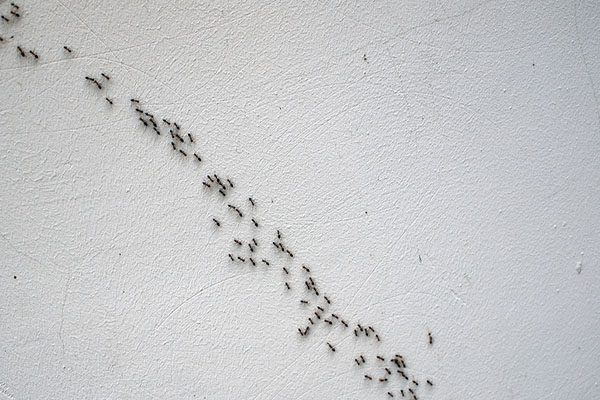Before heading out to the mountains, the woods or the beach this summer, take these steps to defend yourself and your vacation from ants.

Nothing ruins a camping trip or outdoor family outing like ants. Cabins can be as cozy as they are rustic, but they can also be vulnerable to any number of pests eager to spoil your getaway — not to mention consume any limited provisions you’ve brought along for your trip. Before heading out to the mountains, the woods or the beach this summer, take these steps to defend yourself and your vacation from ants.
How to Keep Ants Away from Your Campsite
Understand common misconceptions and identify different types of ants and species.
The first step in arming yourself against ants is to put aside a few common misconceptions about these social insects. Winged ants are not a specific species of ant. As part of their reproductive cycle, which usually coincides with summer, nearly all ant species produce a special class of “reproductives.” These ants are equipped with wings so they can spread out and establish new ant colonies.
When ants attack, the majority of them don’t bite. Instead, ants sting, much like their bee and wasp cousins (all are members of the order Hymenoptera).
Finally, ants don’t have a specialized diet and are attracted to many of the same foods we like to eat. Simply removing sweet treats from your store of vacation snacks will not deter ants that may have taken up residence where you’re staying.
We all know the saying “the best defense is a good offense.” Unfortunately, this conventional wisdom doesn’t necessarily apply to killing ants. Depending on where you live or where you’re staying, you may encounter dozens if not hundreds of types of ants. All ants aren’t created equal, and actually exterminating ants is a job best left to professionals. For example, it may be satisfying to stomp on these pests, either squashing them or sending them scattering. However, if you’re dealing with coconut ants, you’ll pay a price. Coconut ants are also known as odorous house ants (Tapinoma sessile), and they release a disgusting, rotten fruit odor if crushed.
Just make sure your coolers and other food storage containers are sealed tightly and free from any entry points for ants and other pests. If a particular food item does become infested, dispose of it as quickly as possible, even though simple disposal will not necessarily deter other ants from making a buffet line to your home away from home.
Locate the ant scent trails and remove the colony using common household items.
Crawling or flying, red or black, large or small, how can we keep ants away and what can we do get rid of ants that have made their way inside? The good news in both cases is that regardless of the ant species in question, we can use the insects' own ingenuity against them. Once scouting ants have identified a source of food or water, they begin to lay down what are known as scent trails. These trails, which consist of natural chemical compounds secreted by ants, serve a double purpose.
First, they help the first ant retrace its steps back to its colony or nest; second, in stronger concentrations, they direct other ants to the location of the food the scout has discovered. These pheromone-laden scent trails are invisible to the naked eye — that is until you notice the ants themselves marching in formation along the tracks they’ve laid down.

You can wipe out these trails with a number of common household cleaners.
Of course, before you dispose of any ant trails, take a moment to follow the ants back to their anthill or underground nest. As you do, make note of where the ants may be entering your cabin. The structure is likely to be least fortified around baseboards, doorways and windows. Perform a kitchen inspection, especially in cabinets where crumbs can accumulate and under the sink where water can pool. If you spot any cracks, however small, seal them to the best of your ability.
While we may not typically pack a tube of caulk with our camping supplies, doing so may not be such a bad idea. If you aren’t able to seal these cracks, deposit ant repellents there.
How to Get Rid of Ants Inside the House
All these ant pest control tips apply to your home, too. Take extra care to look for any possible points of entry and opportunities to trace ants to their colony. Treating the colony is the best strategy to stopping the little pests from invading.
For more tips on ant control, how to identify ants and other information regarding these pesky creatures, check out these “Ant FAQs” on the Terminix website. Now, enjoy your summer trip with your family — while keeping an eye out for ants.


